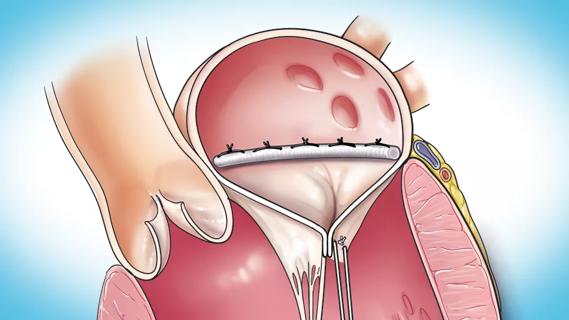Two surgeons share insights on weighing considerations across the lifespan
Podcast content: This podcast is available to listen to online.
Listen to podcast online (https://www.buzzsprout.com/2237537/18106177)
“If you’ve got a patient who has severe mitral valve regurgitation, the clear advice is to get it fixed,” says Marc Gillinov, MD, Chair of Thoracic and Cardiovascular Surgery at Cleveland Clinic. “The valve is broken, and if you leave it alone, it’s going to shorten the patient’s life. When the patient thinks about getting their valve fixed, they should choose a team that can offer a very high likelihood of valve repair over replacement as well as the option to explore a less-invasive robotic approach to repair.”
Advertisement
Cleveland Clinic is a non-profit academic medical center. Advertising on our site helps support our mission. We do not endorse non-Cleveland Clinic products or services. Policy
Those are the cornerstones of advice Dr. Gillinov and his cardiac surgeon colleague Tarek Malas, MD, share in a recent episode of Cleveland Clinic’s Cardiac Consult podcast focused on how they advise patients about mitral valve surgery before and after the operation. Their discussion covers the following:
Click the podcast player above to listen to the 11-minute episode now, or read on for an edited excerpt. Check out more Cardiac Consult episodes at clevelandclinic.org/cardiacconsultpodcast or wherever you get your podcasts.
Tarek Malas, MD: The question comes up about the age at which patients should have their mitral valve repaired or replaced. Generally speaking, when patients are younger, we almost always try to repair the valve. At expert centers, repairs are generally better than replacements. In some cases, we can't repair the valve and we have to replace it — for example, in the setting of rheumatic heart disease or infection, or if the valve is just too calcified.
For patients who are older and who have valves that are not repairable, we generally lean more toward replacement. Replacement is still a great option. Generally, we favor a bioprosthetic valve replacement in the majority of older patients because that’s a valve that provides excellent safety, excellent durability and fits very well in that context.
Advertisement
Marc Gillinov, MD: The average age at which people have surgery for mitral valve prolapse is 59 years. We don’t really think of patients as being in an older age group until the mid-70s and beyond. So, if a patient comes in with mitral valve prolapse and they’re 59 or 69 or even 75, we’re still going to be thinking mitral valve repair is at the top of the list.
Now, if the patient is 80, we’ll be looking carefully at their valve. The key there is to have a quick and safe operation. Oftentimes, a repair is the quickest, safest thing to do in an 80-year-old. But if they’re 80 or 85 and they wind up with a pig valve, they’re still going to be much better off than they were with their broken native valve.
Advertisement
Advertisement

NIH-funded comparative trial will complete enrollment soon

Safety and efficacy are comparable to open repair across 2,600+ cases at Cleveland Clinic

Why and how Cleveland Clinic achieves repair in 99% of patients

An overview of growth in robot-assisted surgery, impressive re-repair success rates and more

Judicious application yields a 99.7% repair rate and 0.04% mortality

Cleveland Clinic series supports re-repair as a favored option regardless of failure timing

A call for surgical guidelines to adopt sex-specific thresholds of LV size and function

Cleveland Clinic series shows re-repair is feasible with excellent midterm results